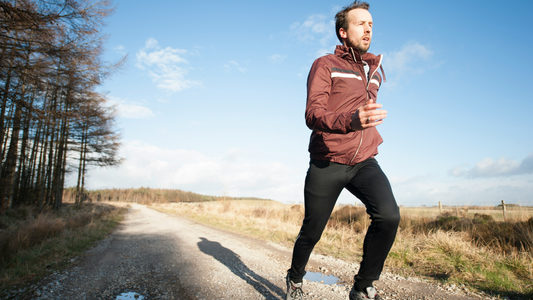

Is It Good To Exercise Before Bed?
Regular exercise is essential for overall health and fitness. It’s important to track your measurements, weight, and other physical fitness markers throughout life. Engaging in a regular fitness routine can help you maintain a healthy weight and stay mobile. It can also help you avoid injuries that might otherwise occur if you fail to keep your body strong and flexible.
No one will argue with you that exercise isn’t important. However, there is a lot of debate in the fitness community about what time of day is best for working up a sweat.
Some insist that you should only work out first thing in the morning. Others may prefer to work out later in the day when they have more energy. But beyond personal preference, are there potential health impacts associated with working out at different times of the day? Is it good to exercise before bed, or can doing so be harmful to your health? This article aims to answer that question and help you determine the best time to schedule your daily workouts.
Is It Good To Exercise Before Bed, or Bad?
Everyone is different, creating sweeping exercise recommendations is usually not a good idea. Some people wake up full of energy and like to workout first thing in the morning. Others may feel sluggish for hours after waking up and may need more time to bring their energy levels up before exercising effectively. Some people may also find it harder to make time for exercise first thing in the morning. They may be more likely to get regular physical activity if they schedule their workouts later in the day after work or school.
But is it good to exercise before bed, or could doing so be detrimental? This is a hard question to answer because there is conflicting information on the matter. Here’s what the latest research has to say about whether or not you should exercise before bed.
The Impact of Exercise on Sleep
Some research suggests that working out right before bed could make it more difficult to fall asleep. This is because strenuous physical activity can cause a rise in body temperature that interferes with the body’s natural circadian rhythm. Usually, the body’s core temperature drops precipitously right before bedtime. This temperature drop helps get the body ready for sleep and should ideally subsist through the night. As morning approaches, your body temperature slowly begins to rise. This helps prepare the body for a state of wakefulness.
When you disrupt this natural pattern by raising your body temperature right before bed, it can confuse your body and make it harder to fall asleep. Aerobic exercise, in particular, could interfere with the timing and quality of your sleep if you engage in it immediately before bed. Exercise can also stimulate the body’s release of endorphins. These are the hormones that can make you feel euphoric and happy. While there’s nothing wrong with feeling happy before bed, a rush of stimulatory endorphins right before bedtime can make it harder to fall asleep.
Conflicting Information
While the above information suggests you should not exercise before bed, there is conflicting research on the matter. According to one systematic review, people who exercise in the evening may actually experience improved sleep. Evening exercise can improve slow-wave and rapid eye movement sleep.
This conflicting information makes it very hard to answer the question, “Is it good to exercise before bed?” Most sleep experts agree that exercising at any time of the day is better than not exercising at all. But if you want to maximize the sleep-boosting benefits of exercise while minimizing the sleep-inhibiting effects, it’s best to end your workout at least an hour before going to sleep. So, if your bedtime is 9:00 p.m., try to end your workout no later than 8:00 p.m. Doing so will give your body temperature and endorphins enough time to return to a more regular bedtime state.
Tips for Getting Sleep After a Workout
If exercising right before bed is your only option, there are things you can do to help your body still get a good night’s sleep. Try the following:
- Engage in lower-intensity exercises before bed instead of high-intensity aerobic workouts.
- Lower the thermostat to help quickly cool your body after a workout so it’s better prepared for sleep.
- Do a 15-minute yoga or meditation session after your workout to calm the body and mind in preparation for sleep.
- Keep late-night workouts short to avoid keeping your body temperature too high for too long before bed.
- Establish a routine and be as consistent as possible about when you work out and go to sleep.
In addition to the above tips, it’s also important to avoid caffeine later in the day. Some people may feel the need to drink a caffeinated beverage or take a caffeinated supplement before working out. Without doing so, they may feel like they have less energy to complete physical exercise. While there’s nothing wrong with taking a caffeine stimulant before a morning workout, doing so in the evening can make nighttime sleep almost impossible. It’s best to avoid this stimulating substance for at least four hours before bed.
You can boost your energy levels without caffeine by eating a meal or snack before your workout, breathing deep to increase oxygen in your body and incorporating non-caffeinated pre-workout supplements. Sometimes, the act of engaging in physical activity itself can boost energy even when you didn’t have any before.
Whether You Exercise Before Bed or Not, Measure Your Progress
As you can see, the answer to the question, “Is it good to exercise before bed?” is not cut and dry. Whether you time your workouts first thing in the morning or right before bed, the important thing is that you’re helping your body stay strong and healthy. To achieve your goals, it’s important to measure your progress.
Use the ZOZOFIT app to make measurement tracking easier than you ever thought possible. It will help you keep track of every phase of your health and fitness journey.

![zf-w-[168px] zf-h-[40px]](http://zozofit.com/cdn/shop/t/15/assets/logo-desktop.png?v=117713855448369080381753069598)




